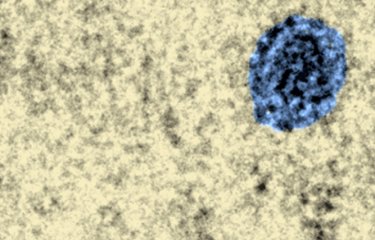-
Article | 2016.12.19
iGEM Pasteur 2016
iGEM, or the international Genetically Engineered Machine competition, was created to promote research in synthetic biology. This annual competition started in 2004 at the Massachusetts Institute of Technology. In 2015 the Institut Pasteur has created a new iGEM-Pasteur initiative and has assembled the iGEM-Pasteur team.
-
Document de presse | 2018.06.19
In-Cell-Art, the Institut Pasteur and BioNet-Asia announce the collaborative development of a dengue vaccine candidate
In-Cell-Art (ICA), a biotechnology company specialized in nanocarrier technologies, BioNet-Asia (BNA), an innovative vaccine developer, and the research team led by Dr. Anavaj Sakuntabhai at the Functional Genetics of Infectious Diseases Unit, Institut Pasteur Paris France, (GFMI-IP), announce today the development of Nanotaxi® formulated DNA vaccine to induce strong immune response against...
-
News | 2019.03.06
Agnès Buzyn, Minister of Solidarity and Health visited the vectopole of the Institut Pasteur de la Guyane
At the end of her visit to French Guiana, Agnès Buzyn, Minister of Solidarity and Health, visited the vectopole of the Institut Pasteur de la Guyane on Friday 1 March 2019. During this visit, Agnès Buzyn met with the Institute's researchers to talk about their research, and how they monitor infectious diseases through the national reference centres funded by the Ministry of Health."The Minister...
-
News | 2019.07.12
Wolbachia, bacteria to combat dengue
The first mosquitoes carrying Wolbachia, bacteria that prevent them from transmitting arboviruses (including dengue, Zika and chikungunya), were released on Wednesday July 10, 2019 in Nouméa, New Caledonia, as part of the World Mosquito Program,* which involves teams from the Institut Pasteur de Nouvelle-Calédonie. The aim of this program is to encourage mosquitoes infected with Wolbachia to...
-
News | 2021.05.03
New Edition of the Emerging & Re-emerging Viruses MOOC
Free et Self-pacedEmerging and re-emerging viruses are key players among the different pathogens that have caused recent epidemics, as attested by several severe outbreaks affecting humans such as Ebola, chikungunya, influenza, Zika, dengue, SARS and MERS or outbreaks attacking animals such as rabies and bluetongue disease.This MOOC aims to provide a fundamental knowledge about the different...
-
News | 2022.02.28
Signing of an exclusive license agreement between the Institut Pasteur and Meletios Therapeutics for the development of a new class of antivirals
The exclusive worldwide license agreement signed between the Institut Pasteur and Meletios Therapeutics, a French biotechnology company specializing in the research and development of next-generation antiviral therapies, concerned a technology platform for the generation of Defective Viral Genomes (DVG). DVGs are truncated or rearranged copies of a virus, making these viral sequences non-...
-
News | 2023.06.06
Tiger mosquito: two viruses newly transmitted from birds to humans
Scientists from the Institut Pasteur have demonstrated that the tiger mosquito, already a vector of diseases such as dengue and chikungunya, has become capable of transmitting the West Nile and Usutu viruses. This emergence may be surprising, but steps can already be taken to tackle it.
-
News | 2022.03.22
Ukrainian scientists: offer to join a host laboratory at the Institut Pasteur in Paris
In view of the ongoing war in Ukraine, the Institut Pasteur is providing funding to host Ukrainian scientists in its research laboratories.
-
Article | 2025.08.19
Environmental transitions and health - Pasteur 2030
Climate change favors the emergence of infectious diseases. Institut Pasteur deploys strategies integrating human, animal and environmental health to reduce these risks.
-
Document de presse | 2017.02.27
Infravec2 project launch: A European Commission 10M€ effort to fight mosquito-transmitted diseases
On February 14, the European Commission officially approved the Infravec2 project . This project will improve the European large-scale facilities (infrastructures) for research on mosquitoes and other insects (vectors) that carry human and animal diseases, and will promote sharing of the facilities by European researchers. The Infravec2 project is funded by the Commission’s Horizon 2020...

